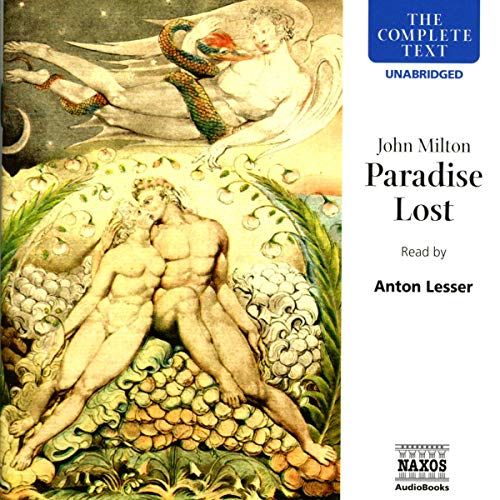John Milton – Paradise Lost Audiobook
John Milton – Paradise Lost Audiobook

*Introduction*
John Milton’s “Paradise Lost,” first published in 1667, is an epic poem that stands as a monumental work in English literature. Composed in blank verse, the poem delves into profound themes of obedience, free will, and the nature of good and evil. The audiobook version elevates Milton’s rich language and intricate storytelling, offering listeners an immersive experience that brings the celestial battles and human struggles vividly to life.
*Plot Overview*
“Paradise Lost” comprises twelve books and reimagines the biblical story of the Fall of Man. The narrative begins in the aftermath of a celestial rebellion, with Satan and his fellow fallen angels cast into Hell. Determined to continue his defiance, Satan embarks on a journey to corrupt God’s newest creation: humankind.
**Books I-II: The Council in Hell**
– **Book I** opens with Satan awakening in the fiery abyss of Hell after being defeated by God’s forces. Unbowed, he rallies his fallen comrades, including Beelzebub and Mammon, proposing a new strategy against God.
– **Book II** features a grand council where the demons debate their next course of action. Ultimately, Satan volunteers to venture to Earth to corrupt Adam and Eve, thereby undermining God’s plans.
*Books III-IV: Satan’s Journey and Arrival in Eden*
– **Book III** shifts to Heaven, where God observes Satan’s intentions. Foreseeing mankind’s fall, He highlights the importance of free will and offers redemption through His Son.
– **Book IV** depicts Satan entering the Garden of Eden. He grapples with inner turmoil upon witnessing the purity of Adam and Eve but resolves to proceed with his deceit.
*Books V-VI: Warnings and the War in Heaven*
– **Book V** introduces the archangel Raphael, who visits Adam and Eve to warn them about Satan. He recounts the story of Satan’s rebellion to emphasize the consequences of disobedience.
– **Book VI** continues with Raphael narrating the epic War in Heaven, detailing the fierce battles between the loyal angels, led by Michael and Gabriel, and the rebels.
*Books VII-VIII: Creation and Human Inquiry*
– **Book VII** has Raphael describing the Creation of the world to Adam, illustrating the majesty and intentionality of God’s work.
– **Book VIII** features a philosophical dialogue between Adam and Raphael, where Adam inquires about the cosmos and recounts his own creation and first moments with Eve.
*Books IX-X: The Fall of Man*
– **Book IX** is the crux of the epic. Satan, taking the form of a serpent, successfully tempts Eve to eat from the Tree of Knowledge. Succumbing to curiosity and flattery, she shares the fruit with Adam. Their disobedience marks the loss of innocence.
– **Book X** portrays the immediate repercussions. Sin and Death enter the world, and the fallen pair experience shame and discord. God sends His Son to pass judgment while also promising eventual redemption.
*Books XI-XII: Exile and Hope for Redemption*
– **Book XI** sees the archangel Michael descending to escort Adam and Eve out of Eden. He provides visions of humanity’s future woes and the hope for salvation.
– **Book XII** concludes with Michael revealing the coming of a Messiah who will ultimately defeat sin and death. Comforted, Adam and Eve depart Paradise hand in hand, beginning their mortal journey with renewed faith.
*Themes*
“Paradise Lost” intricately explores several enduring themes:
– **Free Will vs. Predestination**: Milton delves into the complex relationship between divine foreknowledge and human autonomy, emphasizing the significance of choice and responsibility.
– **Obedience and Rebellion**: The epic contrasts the consequences of obedience to divine authority with the ramifications of rebellion, as exemplified by Satan and later by Adam and Eve.
– **The Nature of Good and Evil**: Through nuanced characterizations, especially of Satan, Milton examines the origins and allure of evil, and its impact on the soul.
– **The Loss of Innocence**: The transition from innocence to experience is central, highlighting the pain and growth that accompany newfound knowledge.
– **Redemption and Sacrifice**: The promise of salvation underscores the narrative, showcasing divine mercy and the ultimate sacrifice envisioned through the Son.
*Audiobook Experience*
The audiobook rendition of “Paradise Lost” brings a dynamic and accessible dimension to Milton’s dense poetic language. A skilled narrator articulates the rhythm and cadence of the blank verse, enhancing comprehension and emotional resonance. The auditory experience amplifies the epic’s dramatic elements—the grandeur of celestial battles, the intimacy of Adam and Eve’s relationship, and the psychological depth of Satan’s character. Listeners are transported into the vivid landscapes of Heaven, Hell, and the primordial Earth, enriching their engagement with the text.
*Conclusion*
John Milton’s “Paradise Lost” remains a masterpiece that offers profound insights into human nature, morality, and the complexities of obedience and defiance. The audiobook format provides an inviting avenue to experience this classic, making the rich tapestry of its themes and the elegance of its language accessible to contemporary audiences. Through its exploration of the fallibility and resilience of humankind, “Paradise Lost” continues to resonate, inviting reflection on the enduring questions of choice, destiny, and redemption.